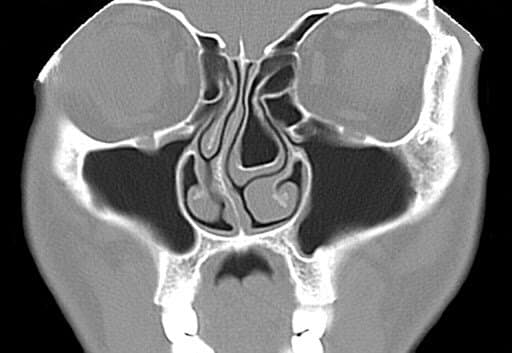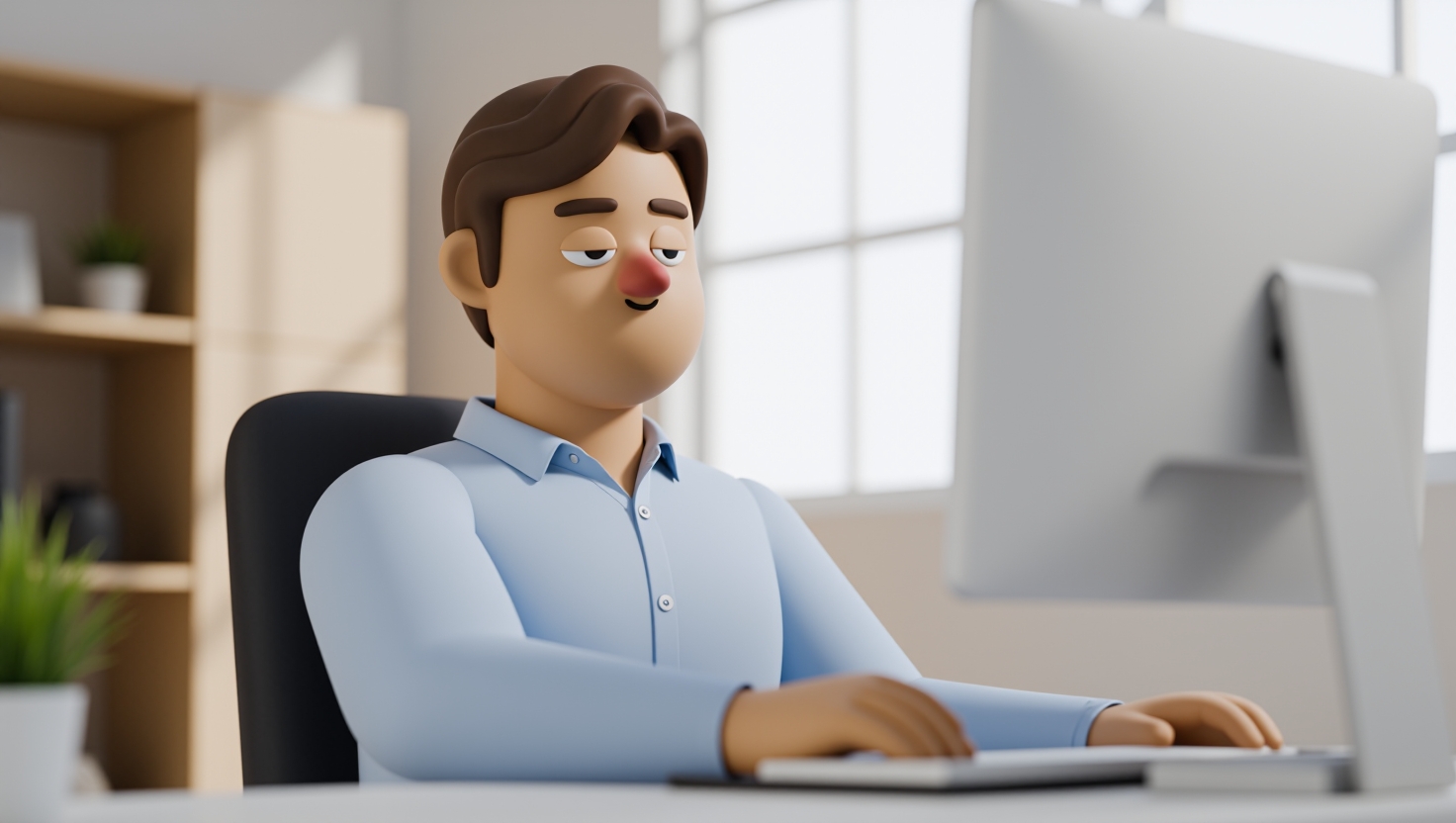Chronic Allergic Fungal Sinusitis: Long-Term ENT Health Impact and Treatment Options
What is Chronic Allergic Fungal Sinusitis (CAFS)?
Chronic Allergic Fungal Sinusitis (CAFS) is a persistent condition marked by an exaggerated immune response to fungi that naturally reside within the nasal and sinus cavities. These fungi—such as Aspergillus and other common molds—are abundant in our environment, commonly found in soil, plants, and damp indoor spaces. While most people inhale these spores without issue, individuals with CAFS experience a pronounced allergic reaction. This immune response triggers ongoing inflammation, increased mucus production, and accumulation of thick fungal debris within the sinuses.
To visualize this, imagine your sinuses as a complex network of tunnels designed to remain clear and moist. When fungi trigger your immune system, excessive mucus and fungal material build up, obstructing these pathways. This creates a cycle of inflammation and blockage that leads to persistent sinus issues.
Understanding the long-term effects of CAFS on ear, nose, and throat (ENT) health is crucial. If untreated, it can result in frequent sinus infections, nasal obstruction, and complications that significantly reduce quality of life. Early diagnosis and consistent management can dramatically improve symptoms and help maintain healthy sinus function over time.
Why CAFS Matters for Your Long-Term ENT Health
Chronic Allergic Fungal Sinusitis is more than just stubborn nasal congestion or occasional sinus headaches—it represents a chronic inflammatory condition that can cause lasting harm. Prolonged inflammation may compromise the delicate nasal and sinus structures and, in rare cases, impact adjacent areas such as the eyes.
One notable risk of unresolved CAFS is the development of nasal polyps—noncancerous membranous growths inside the nasal passages that further obstruct airflow and sinus drainage. These polyps can trap mucus and fungal debris, creating an environment prone to recurrent infections that are often resistant to standard antibiotic treatments.
Early identification and personalized treatment plans are essential to minimize complications. Appropriate care not only reduces repeated infections but also helps preserve vital senses like smell and vision that may be affected by inflammation.
This article includes detailed information about CAFS symptoms, potential complications, current treatment approaches, and practical guidance for maintaining sinus health over the long term.
Recognizing Common Signs of CAFS
Awareness of Chronic Allergic Fungal Sinusitis symptoms allows you to seek timely evaluation. Unlike typical colds or acute infections, CAFS symptoms tend to persist for months or years and often worsen gradually.
Key signs include:
- Persistent Nasal Congestion: Ongoing sensation of nasal blockage or stuffiness that does not improve with usual nasal sprays or home remedies.
- Thick, Sticky Mucus: Nasal discharge can be yellow-green or dark brown, often difficult to clear and worsening over time.
- Facial Pain or Pressure: Aching or fullness in the cheeks, forehead, or around the eyes, sometimes with noticeable swelling.
- Reduced Sense of Smell or Taste: Gradual loss of these senses can significantly impact daily life.
- Nasal Polyps: Benign, fleshy growths inside the nasal passages making breathing and sinus drainage harder. Note that polyps can also occur in other chronic sinus conditions.
- Recurring Sinus Infections: Frequent infections that do not resolve with standard antibiotic courses may indicate underlying fungal involvement.
When to See an ENT Specialist
Seek prompt evaluation by an ENT (Ear, Nose, and Throat) specialist if you experience:
- Sudden vision changes, double vision, or vision loss.
- Severe facial pain or rapid, painful swelling around the eye or face.
- Symptoms that worsen or fail to improve despite treatment.
For example, untreated CAFS can lead to proptosis (eyeball displacement) if inflammation or fungal material exerts pressure beyond the sinuses. If any of these warning signs appear, it is important to consult a specialist promptly to avoid serious complications.
What Triggers Allergic Fungal Sinusitis?
CAFS begins when airborne fungal spores are inhaled and settle in the sinuses. Although billions of spores enter the respiratory tract daily, only certain individuals develop an allergic response leading to CAFS.
Common risk factors and triggers include:
- Environmental Exposure: Molds thrive in soil, leaf piles, compost, and especially in damp, poorly ventilated indoor spaces. People living in humid climates or frequently exposed to gardening activities have increased fungal exposure.
- Asthma or Other Allergies: A history of allergic diseases primes the immune system for heightened sensitivity, raising the likelihood of developing CAFS.
- Nasal Polyps or Chronic Sinus Conditions: Persistent inflammation from prior sinus issues may impair nasal mucosa, making fungal colonization easier.
- Immune System Sensitivity: Some individuals inherently mount an exaggerated immune reaction to fungal allergens.
While completely avoiding fungal exposure is nearly impossible, awareness of your risk factors supports earlier symptom recognition and timely medical intervention.
How CAFS Affects Your Sinuses and ENT Health Over Time
The long-term consequences of untreated Chronic Allergic Fungal Sinusitis can be significant and progressively debilitating.
Common Long-Term Sinus Issues
- Chronic Sinus Blockage: Persistent inflammation, excess mucus, and thick fungal debris obstruct sinus drainage channels, leading to mucus stagnation. This stagnant environment favors recurrent infections that may be challenging to clear.
- Thick Fungal Debris: This fungal material can hardened over time, sometimes resembling a "peanut butter-like" substance that often requires surgical removal.
Serious Health Risks if Left Untreated
While CAFS itself is a non-invasive allergic condition, in rare or severe cases, the following complications can occur:
- Eyeball Displacement (Proptosis): Pressure from inflamed sinus tissues and fungal debris can push the eyeball outward, causing painful swelling and vision disturbance.
- Vision Impairment or Loss: If inflammation spreads beyond the sinuses to surrounding tissues, permanent vision damage can result.
- Tissue Damage: Chronic inflammation and fungal presence may erode nasal and sinus structures. Very rarely, extension toward critical areas such as the brain can cause tissue destruction.
- Note: Invasive fungal sinusitis is a separate, rare, and life-threatening condition seen mostly in immunocompromised patients and should not be confused with CAFS.
A clinical case from an academic center described a patient with prolonged untreated CAFS who developed fungal invasion under the eye socket, resulting in irreversible vision loss and requiring aggressive surgery. Fortunately, with timely medical care, such severe outcomes are uncommon.
Treatment Options for CAFS
Effective management of Chronic Allergic Fungal Sinusitis involves a multidisciplinary approach, combining medical therapies with surgical intervention when needed.
Medical Management Strategies
- Corticosteroids: These are the mainstay of treatment, commonly administered as nasal sprays or oral medications. Steroids reduce inflammation and swelling, improving sinus ventilation and relieving symptoms.
- Antifungal Medications: Systemic antifungals aim to reduce fungal burden but their effectiveness in CAFS is limited and remains controversial. Their use is generally reserved for select cases, as fungi often reside deeply embedded in sinus tissue or mucus.
- Immunotherapy: Allergy shots or sublingual drops may help modulate immune responses over time, potentially reducing allergic reactions to fungal spores; however, immunotherapy is considered an adjunct and is not uniformly effective for all patients with CAFS.
- Other Anti-Inflammatory Agents: Research continues into novel immune-modulating therapies targeting the allergic response more selectively.
Surgical Treatments
Surgery is often necessary when medical therapy alone does not sufficiently clear thick fungal debris or relieve obstruction.
- Functional Endoscopic Sinus Surgery (FESS): This minimally invasive procedure uses small cameras and instruments to remove fungal debris, clear blocked sinus openings, and excise nasal polyps when present. FESS restores sinus ventilation and drainage, and importantly, improves delivery of post-operative topical treatments.
- Combined Approach: Surgery typically provides immediate relief, but long-term control depends on ongoing medical management to reduce inflammation and prevent recurrence.
- Recovery Period: Most patients tolerate FESS well with rapid symptom improvement. Postoperative care usually includes saline nasal irrigation and topical steroids. Regular follow-up is essential to monitor healing and detect any recurrence.
A patient testimonial from a leading sinus center shared, “After FESS and steroid treatment, my chronic congestion finally cleared, and I regained my sense of smell after years of blockage.”
Emerging and Complementary Therapies
Advances in personalized medicine are leading to better tailored treatments based on individual immune profiles. Ongoing clinical trials are investigating new drugs that target fungal allergens and modulate immune overactivity more precisely.
Working closely with your ENT specialist ensures access to the latest therapies and helps identify the most effective, customized treatment plan.
Strategies for Long-Term Relief and Management
Successful long-term management of CAFS combines medical care and lifestyle modifications.
- Regular Follow-Ups: Routine visits with your ENT doctor allow early detection of symptom changes and timely adjustments in therapy.
- Nasal Irrigation: Regular saline rinses help flush allergens, mucus, and fungal debris, reducing inflammation.
- Environmental Control: Minimizing indoor mold exposure is critical. Using HEPA air filters, maintaining low indoor humidity, fixing leaks promptly, and improving ventilation reduce fungal growth in the home.
- Medication Adherence: Consistently following your doctor’s instructions, even when symptoms improve, helps prevent flare-ups and complications.
Lifestyle Tips
- Control Allergies and Asthma: Proper management reduces sinus inflammation and decreases CAFS exacerbations. Consultation with an allergist may optimize strategies.
- Recognize Early Signs: Prompt treatment at the onset of worsening symptoms can prevent severe blockages.
- Maintain a Healthy Home Environment: Regular cleaning, decluttering, and moisture control minimize indoor mold—primary triggers for CAFS.
By integrating these strategies, patients often experience fewer flares, improved sinus function, and better overall well-being.
For more information on maintaining sinus health, see Tips for Managing Chronic Sinusitis.
Common Patient Questions About CAFS
Can CAFS be cured completely?
A permanent cure is difficult due to ubiquitous environmental fungi and individual immune sensitivities. However, most patients achieve excellent symptom control with appropriate ongoing medical care and surgery when necessary.
How often do recurrences happen?
Recurrences are common because fungal spores are ever-present and immune factors persist. Lifelong monitoring and sometimes repeat treatments are typically needed.
Is surgery always necessary?
Not always. Mild cases may respond well to medication alone. Surgery is usually recommended when sinuses are extensively blocked or medications fail to provide relief.
What lifestyle changes can reduce flare-ups?
Managing allergies and asthma, minimizing mold exposure, regular nasal irrigation, and strict adherence to treatment plans significantly lower flare-up risks.
When should I contact my doctor?
Seek prompt attention if symptoms worsen, or if you experience vision changes, rapid facial swelling, severe pain, or persistent discomfort despite treatment.
Summary: The Importance of Timely Treatment and Ongoing Care
Chronic Allergic Fungal Sinusitis is a complex but manageable condition that can significantly impact your quality of life if left untreated. Early recognition of symptoms and evaluation by an ENT specialist are essential to prevent long-term damage.
Combining effective surgical techniques with consistent medical therapy and informed lifestyle adjustments allows for symptom control, fewer infections, and preservation of important senses such as smell and vision.
If you experience persistent sinus problems or suspect you may have CAFS, consult a qualified ENT provider for evaluation and personalized care. Timely intervention and expert management pave the way toward lasting relief and improved quality of life.
References and Further Reading
- Cedars-Sinai Medical Center: Allergic Fungal Sinusitis Overview
- American Academy of Otolaryngology - Head and Neck Surgery: Fungal Sinusitis
- Cleveland Clinic: Fungal Sinusitis
This article is for educational purposes only and is not medical advice. Please consult a qualified healthcare provider for diagnosis and treatment.
Don’t let allergies slow you down. Schedule a comprehensive ENT and allergy evaluation at Sleep and Sinus Centers of Georgia. We’re here to find your triggers and guide you toward lasting relief.





